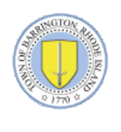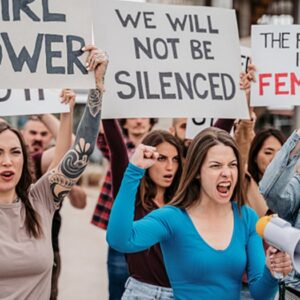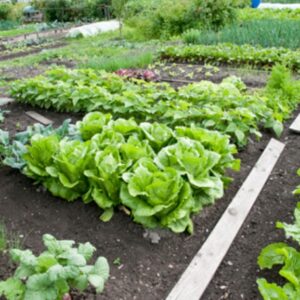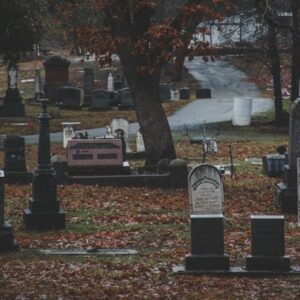by Rev. Racquel Ray, Assoc. Minister (Acting)
We are so blessed to be part of a church congregation that is happy, healthy, and growing! In a season of the Church when many churches are shrinking and closing, we are fortunate. Our success as a congregation is no accident. It is the result of intentional ministry and investment of time, talent and financial gifts. There is a formula for church success, and it does involve intentional hard work. It requires vision and focus. It also involves radical welcome and ministry that is responsive to the Still Speaking God in the community.
 Almost every seminary professor would mention at some point in our classes, “the church is dying”. No seminarian, preparing to work in the church, wants to hear that their vocation will bring them to a dead end. One professor, out of dozens, highlighted the source of success in ministry: successful churches listen to their communities and respond to their particular contexts. Churches that are only open for a few hours on Sunday mornings are struggling. Churches that integrate their contexts and their ministries by intentionally blending congregation and community thrive.
Almost every seminary professor would mention at some point in our classes, “the church is dying”. No seminarian, preparing to work in the church, wants to hear that their vocation will bring them to a dead end. One professor, out of dozens, highlighted the source of success in ministry: successful churches listen to their communities and respond to their particular contexts. Churches that are only open for a few hours on Sunday mornings are struggling. Churches that integrate their contexts and their ministries by intentionally blending congregation and community thrive.
If we really look at our current community and our particular contexts we may notice that we have many retired members, some members with physical differences who have challenges accessing the sanctuary and sitting for an hour in non air-conditioned summer heat, some members come as families, some single adults, some young adults, teens and tweens, and school-aged kids. We have a gap in young people with absolutely NO tenth graders in our congregation. Over the past few weeks, several new families have inquired about our congregation and programs and several families are rejoining in-person events and activities. We have several members who are joining worship on-line and are requesting more inclusion with bulletins, visual, and hearing accommodations.

 We are part of the larger Barrington community whose main industry is children’s education and enrichment. We have a YMCA, Senior Center, recreational sports leagues, and a few local and chain retail shops and restaurants. Our neighbors include several other houses of worship which partner with our inter-faith softball league, clergy group, and occasional ecumenical services or projects. We also have a private boarding and day school just up the road from the church, a robust public service network, a country club, a mix of single-family homes, and miles of shoreline. We are privileged to have green spaces, conservation land, parks, playgrounds, beaches, and a bike path.
We are part of the larger Barrington community whose main industry is children’s education and enrichment. We have a YMCA, Senior Center, recreational sports leagues, and a few local and chain retail shops and restaurants. Our neighbors include several other houses of worship which partner with our inter-faith softball league, clergy group, and occasional ecumenical services or projects. We also have a private boarding and day school just up the road from the church, a robust public service network, a country club, a mix of single-family homes, and miles of shoreline. We are privileged to have green spaces, conservation land, parks, playgrounds, beaches, and a bike path.
You already know all of this. I only review our context to ask the question, “What is our role in the community?” I have heard people refer to BCCUCC as the ‘rainbow church’, the ‘white church’, the ‘happy church’. Our history was as the center of the community: government, religion, education, and community center. Who are we now?
As we emerge from the pandemic and recreate our church community, we have a unique opportunity in the lifetime of the church to define who we are and who we want to be. What do we want to contribute to the community? Where might we focus our attention and our intention?

 Do we want to be the mission and justice church hosting justice vigils, supporting local, national, and global missions, and supporting legislative advocacy at the state house? Do we want to be the green church that raises environment awareness through solar panels, electric vehicle charging stations, compost bins, recycling, reducing, reusing, repurposing, and growing organic produce for the community? Do we want to be the rainbow church that is open and affirming to people who identify as LGBTQIA+ and engage in local, national, and global advocacy for that community? Do we want to be the healthy church that offers classes, group activities, awareness, and challenges toward the physical care of the body? Do we want to be the historical church that embraces our history and opens our doors to tours, exhibits, lectures, and programs around that history? Do we want to be the kids church where local families flock to enrich the spiritual growth of their youngest members? Do we want to be an outreach church where what we do in church informs our work with the poor, the hungry, the homeless, the naked, the thirsty, the incarcerated – what Rev. Emma Brewer-Wallin calls ‘the least of these’? If we were to choose ONE or TWO ministries to focus our ministry on, what would we choose?
Do we want to be the mission and justice church hosting justice vigils, supporting local, national, and global missions, and supporting legislative advocacy at the state house? Do we want to be the green church that raises environment awareness through solar panels, electric vehicle charging stations, compost bins, recycling, reducing, reusing, repurposing, and growing organic produce for the community? Do we want to be the rainbow church that is open and affirming to people who identify as LGBTQIA+ and engage in local, national, and global advocacy for that community? Do we want to be the healthy church that offers classes, group activities, awareness, and challenges toward the physical care of the body? Do we want to be the historical church that embraces our history and opens our doors to tours, exhibits, lectures, and programs around that history? Do we want to be the kids church where local families flock to enrich the spiritual growth of their youngest members? Do we want to be an outreach church where what we do in church informs our work with the poor, the hungry, the homeless, the naked, the thirsty, the incarcerated – what Rev. Emma Brewer-Wallin calls ‘the least of these’? If we were to choose ONE or TWO ministries to focus our ministry on, what would we choose?
If we were to focus on one area per year or one area over the course of two or three years, what might that look like and what impact will it make on the community? Not losing sight of the Gospel message of Loving God, Loving Neighbor, and Loving Self how might we direct our efforts as one body? How does the love of Christ inform that ministry? And how can we build upon the solid foundation we already have co-created?
 On a recent walk through a local cemetery, I noticed that one of the gravestones had the inscription listing the birth and death dates and had calculated the years, months, and days. What struck me in this inscription is that the family of the interred counted their days. Each day of their loved one’s life mattered. It reminded me that as we re-gather in congregational community we have the option to make our days count. We have the ability to make history – or take our place in it – here in our current context.
On a recent walk through a local cemetery, I noticed that one of the gravestones had the inscription listing the birth and death dates and had calculated the years, months, and days. What struck me in this inscription is that the family of the interred counted their days. Each day of their loved one’s life mattered. It reminded me that as we re-gather in congregational community we have the option to make our days count. We have the ability to make history – or take our place in it – here in our current context.
The United Church of Christ offers certification support for congregations who want to build Wellness Programs, Green Church (environmental justice), and WISE certification (mental wellness safe space). There are national supports for becoming a private day school and offering a Christian education for elementary through high school students. There are supports for becoming a seminarian or chaplain learning facility. All of these possibilities require years of collaboration and visioning.
As a historical, justice-minded, open and affirming, safe space for cross-generational gatherings, with excellent worship, healthy and vibrant relationships, a superb staff, and large campus church in a education-minded small town how can we make our days count? How can we make our mark on history and our community? And what might our focus be?



